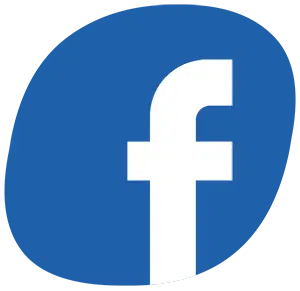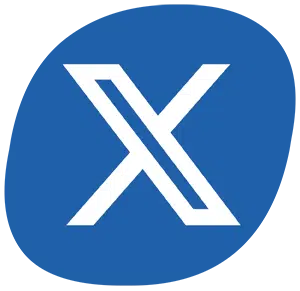ACUPUNCTURE – PROVIDING MODERN HEALTHCARE USING ANCIENT WISDOM
“I am hugely grateful for the holistic care and support provided. I feel so much better and revitalised.” – K.H.
“I am hugely grateful for the holistic care and support provided. I feel so much better and revitalised.” – K.H.
Traditional Chinese Acupuncture is one of the safest treatments available. There are very few side effects from acupuncture given by a fully qualified practitioner of traditional acupuncture.
Traditional Chinese Acupuncture at Park View Clinic
Traditional Chinese Acupuncture at Park View Clinic
Traditional Chinese Acupuncture at Park View Clinic


TRADITIONAL CHINESE ACUPUNCTURE
Energy re-balancing for your Qi (chee)
Energy re-balancing for your Qi (chee)
Traditional Chinese Acupuncture works by moving and re-balancing Qi throughout your body.
It involves inserting hair thin sterile needles into specific points around the body to regulate the flow of Qi in meridians (pathways).
Traditional Chinese Acupuncture works by moving and re-balancing Qi throughout your body.
It involves inserting hair thin sterile needles into specific points around the body to regulate the flow of Qi in meridians (pathways).
What is Traditional Chinese Acupuncture all about?
What is Traditional Chinese Acupuncture all about?
What is Traditional Chinese Acupuncture all about?
A Holistic Approach
A Holistic Approach

A Holistic Approach
The circulation of Qi and its balance to achieve whole health
The circulation of Qi and its balance to achieve whole health

The circulation of Qi and its balance to achieve whole health
Acupuncture Techniques
Acupuncture Techniques
Sarah and Rebecca are committed to continually update their skills to provide the best up-to-date care that can treat people of all ages. Some of the techniques used in your treatment plan are:
Sarah and Rebecca are committed to continually update their skills to provide the best up-to-date care. Some of the techniques used in your treatment plan are:
Talk to your practitioner if you have any concerns and/or preferred treatment techniques.
Talk to your practitioner if you have any concerns and/or preferred treatment techniques.

Initial Acupuncture Consultation
Your first visit
| 1 | Please allow up to 1½ hours for your initial consultation. However, to be able to start your care as soon as possible we may arrange for your acupuncturist to take your case history over the phone making your clinic visit shorter. Allow approximately 40 minutes for follow-ups.
Please wear loose fitting clothes to allow access to the acupuncture points on your arms and legs. If you need to undress your modesty will be respected. |
|
|---|---|---|
| 2 | We have a car park but if you prefer to park in the road you can park opposite for 2 hours at any time. On our side you cannot park 10am-11am or 2pm-3pm unless you have a Zone H permit. | |
| 3 | The clinic entrance is down the side of the building. | |
| 4 | On arrival you will be welcomed by one of our receptionists, who will ask you to complete a form requiring the following:
|
|
| 5 | Your practitioner will introduce herself and take you through to the consultation room. Your consultation will include:
|
|
| 6 | At the end of the visit there will be further opportunity to ask questions After the treatment you will have a general feeling of relaxation and calmness and possibly feel tired Occasionally a point may bruise or bleed very slightly. | |


Initial Acupuncture Consultation
Your first visit
| 1 | Please allow up to 1½ hours for your initial consultation. However, to be able to start your care as soon as possible we may arrange for your acupuncturist to take your case history over the phone making your clinic visit shorter. Allow approximately 40 minutes for follow-ups.
Please wear loose fitting clothes to allow access to the acupuncture points on your arms and legs. If you need to undress your modesty will be respected. |
|
|---|---|---|
| 2 | We have a car park but if you prefer to park in the road you can park opposite for 2 hours at any time. On our side you cannot park 10am-11am or 2pm-3pm unless you have a Zone H permit. | |
| 3 | The clinic entrance is round the side of the building. | |
| 4 | On arrival you will be welcomed by one of our receptionists, who will you to complete a form requiring the following details:
|
|
| 5 | Your practitioner will introduce herself and take you through to the consultation room. Your consultation will include:
|
|
| 6 | At the end of the visit there will be further opportunity to ask questions After the treatment you will have a general feeling of relaxation and calmness and possibly feel tired Occasionally a point may bruise or bleed very slightly. | |
Our fees:
| Adults | Under 16’s | |
|---|---|---|
Initial Consultation including First Treatment:
|
£70 | £60 |
Treatment Visit:
|
£50 | £38 |
Re-Examination:
|
£60 | £48 |
Concessions:
|
||
Our fees:
| Adults | Under 16’s | |
|---|---|---|
Initial Consultation including First Treatment:
|
£70 | £60 |
Treatment Visit:
|
£50 | £38 |
Re-Examination:
|
£60 | £48 |
Concessions:
|
||
Frequently Asked Questions
Frequently Asked Questions
Frequently Asked Questions

When performed by a trained acupuncturist acupuncture is very safe. Almost certainly a lot safer than any medication you may be taking for your complaint.
We only use blister packed sterile disposable needles so there is no risk of cross infection.
We have a section on acupuncture techniques, accessed here.
The acupuncture profession is not regulated so anyone can call themselves an acupuncturist!
Both our acupuncturist are fully trained, are members of the British Acupuncture Council and hold appropriate insurance.
When choosing an acupuncturist it is very important that you make sure that your chosen practitioner is fully qualified, is insured and understands the nature of any pre-existing medical conditions you may have.
Generally no. Anyone who has experienced both will tell you the techniques used are miles apart. The needles used are the same but that is where the similarity ends.
Acupuncture in Traditional Chinese Medicine (TCM) is a holistic form of acupuncture. This means that you are treated as whole person not just as a painful elbow, a skin rash, a painful period or whatever happens to the manifestation of your problem. Therefore the case history and the examination is far more comprehensive and the diagnosis is based on several factors such as your mental and physical wellbeing, the appearance of your tongue (colour, shape, smoothness, coating), the quality of your pulse in your wrist etc. These are all part of the holistic approach to any person seeking help from an acupuncturist who is trained in Chinese Medicine.
Those who are not TCM trained use Western Acupuncture or Dry Needling. Both of these methods are very symptom targeted and far less comprehensive in their approach to the underlying problems causing your your discomfort. Therefore the needling technique and the needling sites are also different.
The insertion of the needles causes little or no discomfort, but a localised ache may be felt when the acupuncture point is reached.
The needles range from 25mm to 75mm (1 to 3 inches) in length and are only slightly thicker than a human hair.
Treatment can produce rapid results but usually a course of treatment is required, normally 5-10 weekly appointments.
As each treatment plan is tailor-made it is important that you discuss the options and duration of the course with the acupuncturist.
As there is no regulation of the acupuncture profession the blood donor service has decided not to accept blood from anyone who has had acupuncture within the previous four months. The is due to the very small risk of hepatitis, which can be a problem if proper hygiene procedures are not followed.
Rest assured that we do everything possible to minimise this risk.
When performed by a trained acupuncturist acupuncture is very safe. Almost certainly a lot safer than any medication you may be taking for your complaint.
We only use blister packed sterile disposable needles so there is no risk of cross infection.
We have a section on acupuncture techniques, accessed here.
The acupuncture profession is not regulated so anyone can call themselves an acupuncturist!
Both our acupuncturist are fully trained, are members of the British Acupuncture Council and hold appropriate insurance.
When choosing an acupuncturist it is very important that you make sure that your chosen practitioner is fully qualified, is insured and understands the nature of any pre-existing medical conditions you may have.
Generally no. Anyone who has experienced both will tell you the techniques used are miles apart. The needles used are the same but that is where the similarity ends.
Acupuncture in Traditional Chinese Medicine (TCM) is a holistic form of acupuncture. This means that you are treated as whole person not just as a painful elbow, a skin rash, a painful period or whatever happens to the manifestation of your problem. Therefore the case history and the examination is far more comprehensive and the diagnosis is based on several factors such as your mental and physical wellbeing, the appearance of your tongue (colour, shape, smoothness, coating), the quality of your pulse in your wrist etc. These are all part of the holistic approach to any person seeking help from an acupuncturist who is trained in Chinese Medicine.
Those who are not TCM trained use Western Acupuncture or Dry Needling. Both of these methods are very symptom targeted and far less comprehensive in their approach to the underlying problems causing your your discomfort. Therefore the needling technique and the needling sites are also different.
The insertion of the needles causes little or no discomfort, but a localised ache may be felt when the acupuncture point is reached.
The needles range from 25mm to 75mm (1 to 3 inches) in length and are only slightly thicker than a human hair.
Treatment can produce rapid results but usually a course of treatment is required, normally 5-10 weekly appointments.
As each treatment plan is tailor-made it is important that you discuss the options and duration of the course with the acupuncturist.
As there is no regulation of the acupuncture profession the blood donor service has decided not to accept blood from anyone who has had acupuncture within the previous four months. The is due to the very small risk of hepatitis, which can be a problem if proper hygiene procedures are not followed.
Rest assured that we do everything possible to minimise this risk.

























